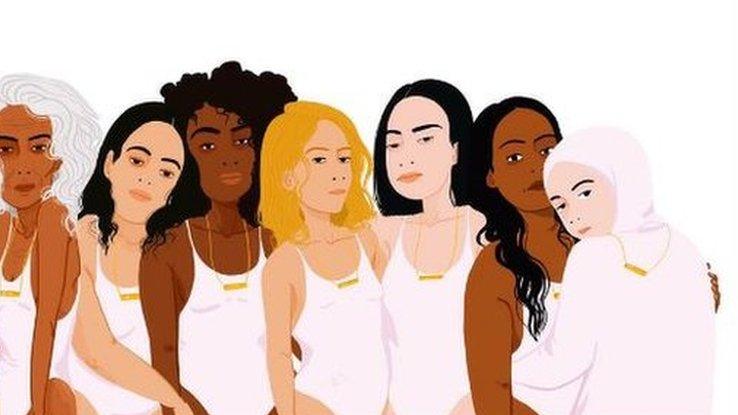French resorts lift burkini bans after court ruling
- Published
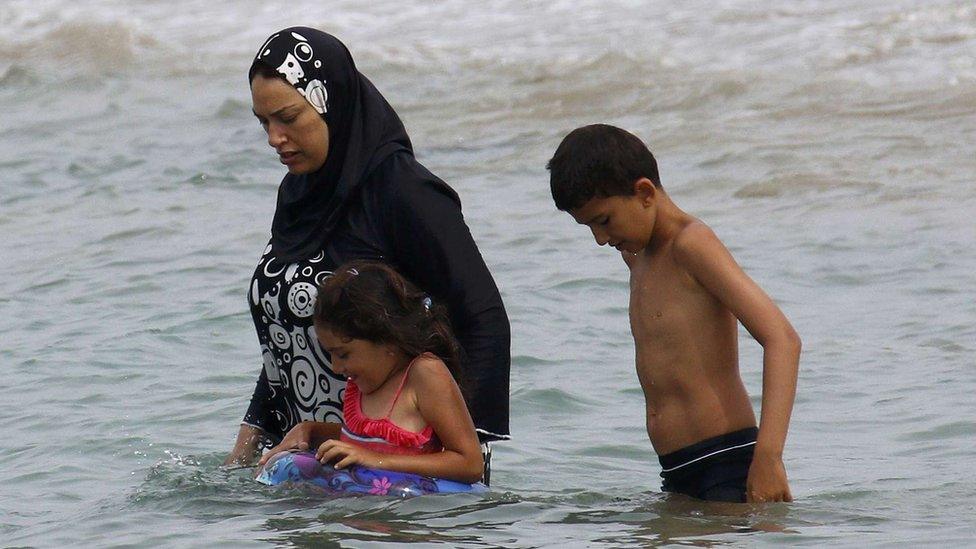
The burkini leaves only the face, hands and feet exposed
The city of Nice has lifted a controversial ban on burkinis - the latest French seaside resort to do so, in line with a national court ruling.
Bans on the women's full-body swimsuits have also been lifted in Villeneuve-Loubet, Cannes, Frejus and Roquebrune.
French Riviera mayors imposed the bans, but they were overruled on Friday by France's top administrative court.
Critics see burkinis as a symbol of Islam and potentially provocative after the July terror atrocity in Nice.
But on Friday, France's Council of State ruled that the ban in Villeneuve-Loubet "seriously and clearly illegally breached fundamental freedoms".
The human rights lawyer who brought that case said he would take each town to court over their burkini bans.
The Collective against Islamophobia in France (CCIF) and the Human Rights League (LDH) challenged the Villeneuve-Loubet ban, turning it into a test case.
In recent days courts in several French Riviera resorts have annulled their bans - even though local mayors had vowed to keep them in place.
Two beach resorts in Corsica - Sisco and Ghisonaccia - still have bans in place.
French Prime Minister Manuel Valls wrote in support of the bans, saying burkinis were "the affirmation of political Islam in the public space".
Burkinis were not mentioned by name in the bans, with the order simply saying beachwear must be respectful of good public manners and the principle of secularism.
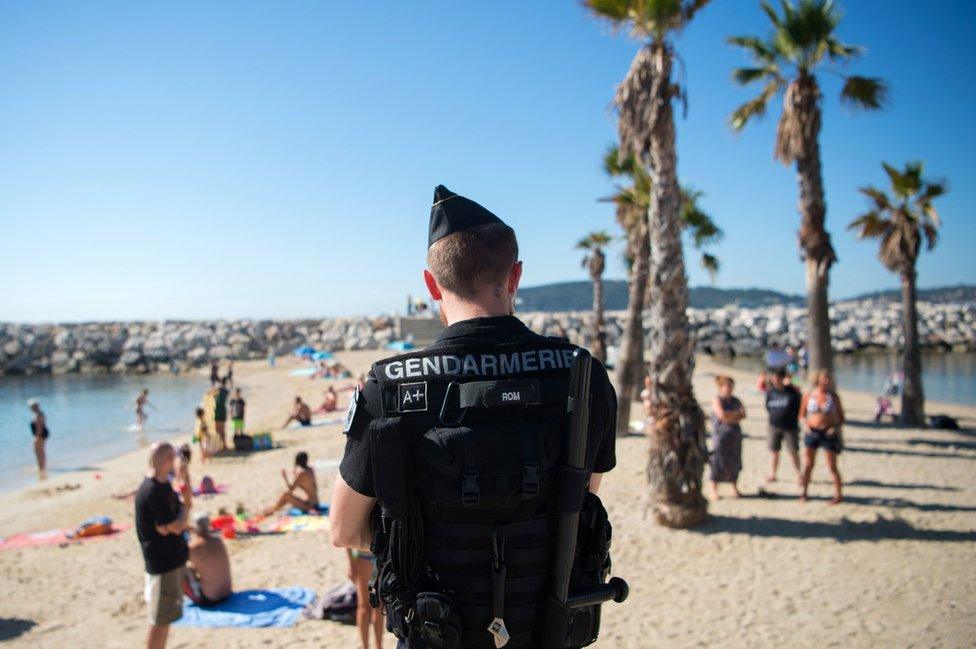
France boosted security at beach resorts after the Nice truck attack of 14 July
Authorities had said that they were concerned about the public order implications of the religious clothing, especially after the attacks in Nice and Paris carried out by people influenced by Islamist extremism.
On Bastille Day, 14 July, a lorry careered into a beachfront crowd in Nice, killing 86 people. Jihadists also killed 147 people in Paris last year.
While opinion polls suggested most French people backed the burkini bans, they ignited fierce debate in France and around the world, with Muslims saying they were being unfairly targeted.

What is a burkini?
A burkini is a full-body swimsuit that covers everything except the face, hands and feet
The name is a mix of the words "burka" and "bikini"
Unlike burkas, burkinis leave the face free
Burkinis are marketed to Muslim women as a way for them to swim in public while adhering to strict modesty edicts
The French bans have referred to religious clothing and as they were loosely phrased, came to be understood to include full-length clothing and head coverings worn on the beach - not just burkini swimsuits

What French law says on secularism and religious clothing
In 2010, France became the first European country to ban the full-face veil in public
A 2004 law forbids the wearing of religious emblems in schools and colleges
The 1905 constitution aims to separate Church and state. It enshrines secularism in education but also guarantees the freedom of religion and freedom to exercise it. The original text made no reference to clothing

- Published26 August 2016

- Published15 August 2016
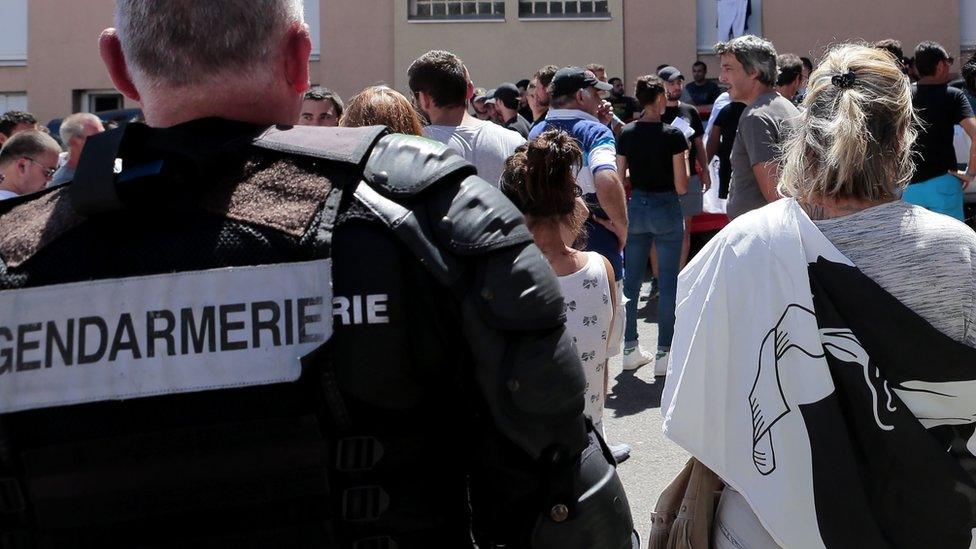
- Published17 August 2016
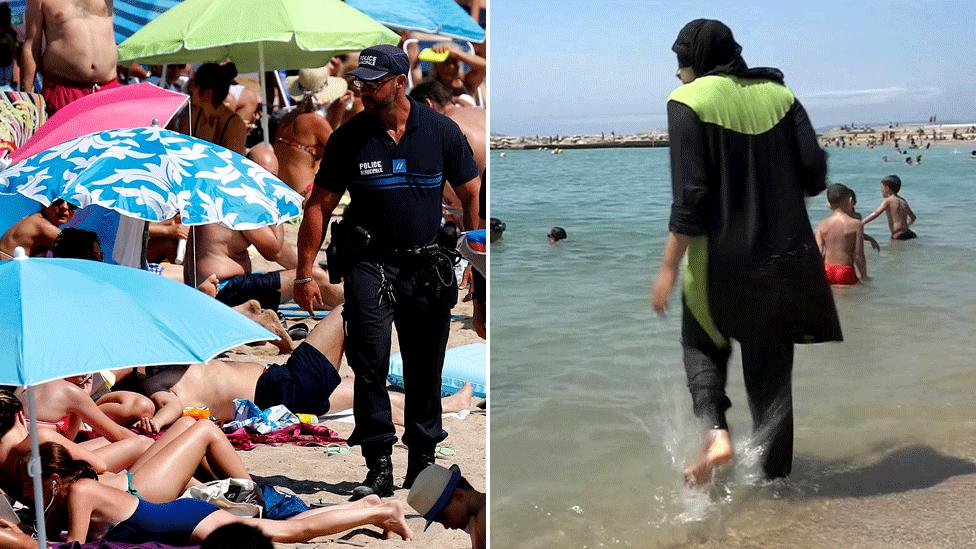
- Published24 August 2016

- Published13 August 2016
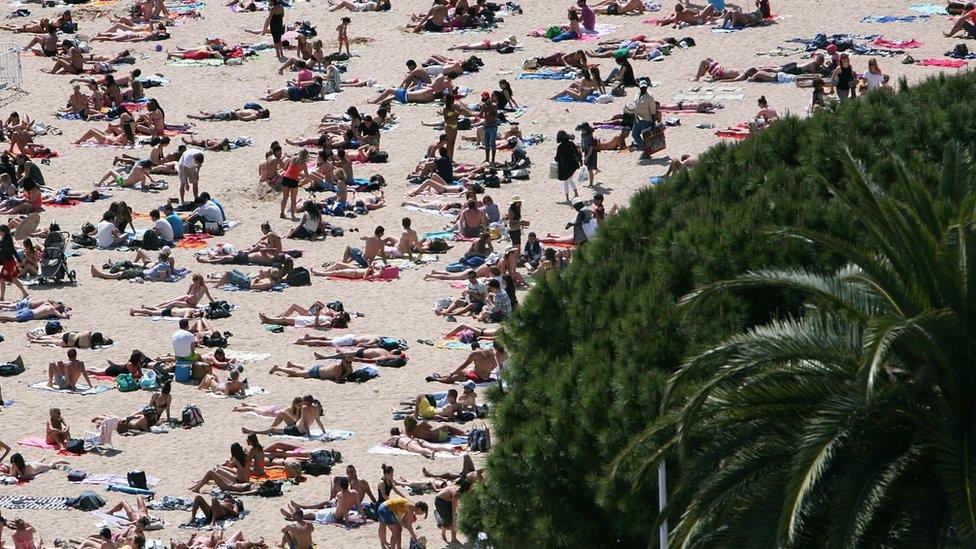
- Published24 August 2016
